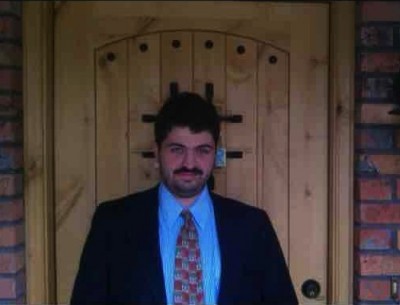Mir-Yashar Seyedbagheri
MFA Candidate in Fiction, 2018
While getting good grades is vital, I’ve learned it’s the grade I give myself as a writer that has driven me to write, revise, and to craft smooth, well-developed short stories to send into the world, a marker by which to define myself, to sound my “barbaric YAWP over the roofs of the world.”
What inspired you to get a degree in English?
I became fascinated by creative writing after taking several fiction classes as an undergraduate, and joined a writing group in my hometown (Boise, ID). During that period, I became intrigued by the idea of pursuing an MFA, and taking my fiction to the next level. I knew that writing was driving me intellectually, and I could spend my life pursuing a career as a fiction writer.
Why do you think the humanities are important?
There is too much of an emphasis on material profits, as opposed to profiting in the sphere of ideas and discourses. Students need to be grounded in a healthy discussion of ideas and principles, to have a sense of their place in the great pantheon of history, of art, of literature. Society cannot function without healthy, intellectual debate, and without freethinkers to challenge problematic assumptions and norms, we are fostering a dangerous climate, driven by conformity and gladiator mentality, a society driven by brutal competition. As Kevin Spacey said in “Horrible Bosses”, “Life is a marathon and you cannot win a marathon without putting a few Band-Aids on your nipples.” Let us put Band-Aids on our preconceived notions, and heal our minds, rather than thinking of writing and life as brutal competition.
You are teaching E210: Beginning Creative Writing in the fall. What is your favorite thing about teaching?
The idea of instigating a dialogue about creative writing, and thus leaving a mark on my students. The beauty of teaching creative writing is that it opens itself up to vigorous but civil debate, a debate in which healthy dissent is encouraged, and students can begin to form their own particular philosophies and principles on the subject. I want to get students thinking about all the possibilities available to them, rather than guiding them in one particular direction.
What do you consider to be your greatest accomplishments (both personally and professionally)? How did your experience in the English Department help you with these achievements?
I have had the good fortune to get short-stories (namely flash fiction) published in various on-line journals. I’ve seen the highest caliber work from my cohorts in the program, and have subsequently been driven to better myself as a writer and self-motivator. While getting good grades is vital, I’ve learned it’s the grade I give myself as a writer that has driven me to write, revise, and to craft smooth, well-developed short stories to send into the world, a marker by which to define myself, to sound my “barbaric YAWP over the roofs of the world.”
What was the last piece of writing you read or wrote? OR, What are you currently reading, writing?
I recently wrote a story called, “Abide”, about a young woman who is a single mother, posing as the child’s older sister. She is grappling with the ramifications of this lifelong charade, as she contemplates leaving home, and leaving her son in the hands of her autocratic, overbearing father.
What are you doing with your summer break?
We might imagine faculty hidden in secret teachers’ lounges, plotting nefarious schemes. But the only thing I’ve been plotting is publication, shooting high. With a kind of manic energy, I’ve plunged myself into a regimen of writing, revising, and submitting to top literary journals, including the Holy Grail of them all: The New Yorker. To me summer is a time to challenge myself, to push myself as far as I can go. Every day I submit, I feel an ultimate satisfaction at sending my work out into the world. With each rejection, I send a new piece out, determined to fight on. And I feel confident that I will reach “the unreachable star” to quote a favorite song.
What are your hobbies or special interests, what do you enjoy doing with your free time?
I like to listen to Tchaikovsky and other great classical composers, in addition to my Netflix and Amazon prime binges. I feel like classical music truly induces creativity, and puts me in the proper emotional mood to write, to produce the stories that matter, the stories that induce what Nabokov referred to as “that little sob in the spine of the artist-reader.”
What is something most people don’t know about you?
I adore Tchaikovsky and consider myself a Romantic, with a capital R. A 19th century Romantic.
What is your favorite word and why?
Abide. I love the word. The word conveys the mantra of The Dude from my favorite movie, “The Big Lebowski.” It holds a soothing, peaceful connotation, and a signpost by which to guide my daily outlook. The word guides me away from conflict and dwelling on negativity, and into a gentle dreamlike state.
